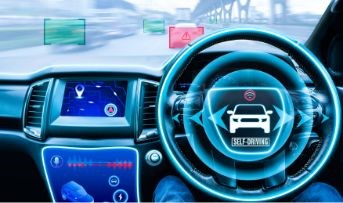Blog Details - Magma HDI

A collision is more likely caused by drivers than self-driving cars! 19th April 2020
Car accidents are a significant concern for drivers and insurance providers worldwide. With the manufacturing of self-driving cars, people have started to question the safety of these vehicles. While some argue that self-driving cars can cause accidents due to technical glitches, studies suggest that human error is the leading cause of accidents on the road. Self-driving vehicles have the potential to significantly reduce the likelihood of accidents, as they are equipped with advanced technology and programmed to follow traffic rules.
In this blog post, we will explore why collisions are more likely to be caused by human error than by self-driving cars.
1. Human error is the leading cause of accidents
According to a report by the National Highway Traffic Safety Administration, more than 70 percent of accidents are caused by human error. This includes factors such as speeding, drunk driving, distracted driving, and more. The behavioural traits of human drivers should also be accountable. The driver's mood also affects his driving style, and if the driver is in a bad mood or frustrated, he will likely drive the car fast. Rash driving has been a leading cause of accidents and fatalities. Self-driving cars, on the other hand, have the potential to eliminate these errors and make driving safer.
2. Self-driving cars are equipped with advanced technology
Self-driving vehicles are equipped with sensors, cameras, and advanced software to detect potential collisions and take necessary action to avoid them. These features can significantly reduce the likelihood of accidents.
3. Self-driving cars are programmed to follow traffic rules
Self-driving cars are programmed to follow traffic rules and regulations, eliminating the possibility of reckless driving. This ensures that self-driving cars are less likely to cause accidents than human drivers. Humans tend to jump signals, ignore seatbelts, and avoid giving proper indications while making turns.
4. Self-driving cars can communicate with each other
Self-driving vehicles can communicate with each other using vehicle-to-vehicle communication (V2V) technology. This allows them to share information about traffic conditions and potential hazards, which can help prevent accidents.
5. Self-driving cars are less prone to fatigue and distractions
Human drivers are prone to fatigue and distractions, which pose high risks of accidents. On the other hand, self-driving cars do not get tired or distracted, making them more reliable and safer.
6. Self-driving cars can reduce traffic congestion
Self-driving cars can communicate with each other and adjust their speed and route to avoid traffic congestion. This can help reduce the likelihood of accidents caused by congestion and improve overall traffic flow.
7. Self-driving cars are constantly learning and improving
Self-driving cars are equipped with machine-learning algorithms to learn and improve their driving capabilities continuously. This means they will only improve over time, making them even safer.
8. Self-driving cars can reduce insurance costs
Self-driving cars have the potential to reduce insurance costs for drivers significantly. Since they are less likely to cause accidents, insurance providers may offer lower premiums to self-driving car owners.
Self-driving cars are the future of transportation, and it is only a matter of time before they become the norm. As technology improves and becomes more widespread, we can expect to see a significant reduction in accidents and fatalities on the roads.
In conclusion, self-driving cars are less likely to cause accidents than human drivers. They are equipped with advanced technology, programmed to follow traffic rules, and constantly learning and improving. While there is still some skepticism surrounding the safety of self-driving cars, private car insurance India covers them just like any other car.
Click HERE to learn more about the benefits of purchasing private car insurance India.
Disclaimer: The information provided above is for illustrative purposes only. To get more details, please refer to policy wordings and prospectus before purchasing a policy.

